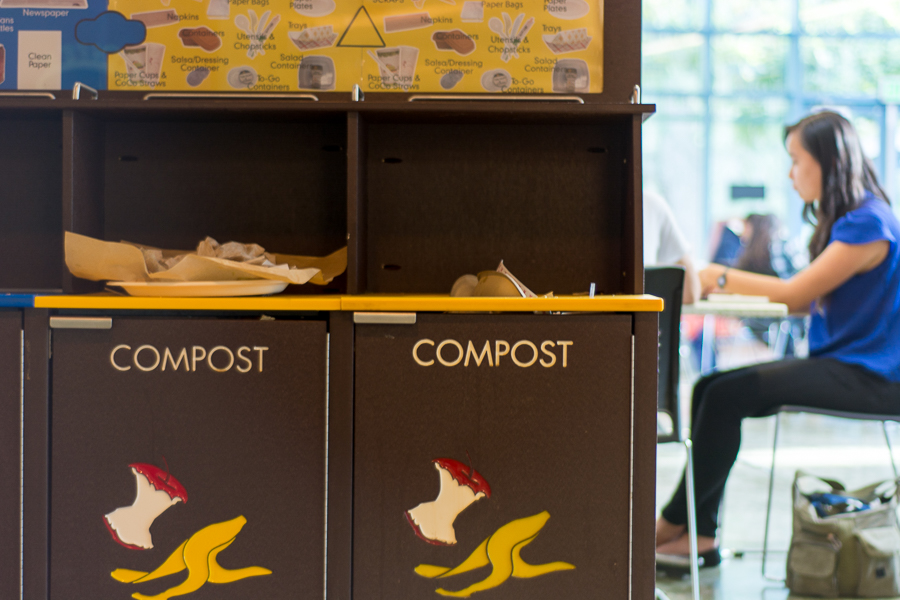
UC Davis makes top 10 in Sierra Club’s cool school rankings for fifth year in a row
UC Davis has once again ranked in the top 10 of Sierra Magazine’s “cool school” rankings for sustainable universities and colleges. Out of 202 competitors across the nation, UC Davis ranked at number eight.
The Sierra Club, a nonprofit environmental organization, ranks schools as “cool schools” based on their total sustainability with a specific focus on areas including campus energy use, transportation and fossil fuel divestment. For the past five years, UC Davis has consistently ranked in the top 10.
“We’re getting public recognition for the work that we are doing to make our operations more sustainable [and] to conduct research that provides solutions and opportunities to make the world more sustainable,” said Camille Kirk, assistant director of sustainability at UC Davis.
This year, applicants participated by completing an extensive questionnaire through The Sustainability, Tracking, Assessment and Rating System (STARS), which measured their sustainability performance. According to the Sierra Club, UC Davis ranked high in part to “how its students live,” since 83 percent of Aggies commute to class sustainably by walking, biking or using public transit.
Many students are also involved in environmental clubs on campus. Campus Center for the Environment (CCE) is a student-run unit of ASUCD that promotes student involvement in campus sustainability efforts. Located in the EcoHub, the CCE holds many projects throughout the year to encourage involvement.
“For Project Compost, we pick up compost from different locations on campus […] and we use an electric vehicle to drive it to our Windrows compost pile by the student farm,” said Mia Kawamoto, third-year environmental science and management major and CCE pile maintenance and compost education director. “Project Garden is another big one — we have a lot of garden workdays for volunteers to come and help.”
The CCE also hosts “Project ART,” in which volunteers pitch and develop “green” ideas to promote change in the community and composting workshops to aid in waste reduction. By participating in Project Challenge, volunteers participate in monthly challenges to become more environmentally-conscious individuals.
“We’re a resource for people who are interested in sustainability and want to learn more about compost and ways to get involved on campus,” Kawamoto said.
Besides students doing their part to help keep the campus sustainable, UC Davis has undertaken many projects in water reduction, waste reduction, transportation, academics and energy efficiency.
In 2015, the Office of Environmental Stewardship and Sustainability worked with SunPower Corporation to build a 16-megawatt solar power plant on campus.
“[The solar plant] is the largest known of any university campus,” Kirk said. “It’s going to reduce our greenhouse gas emissions by 14,000 [which] is a huge bite out of our emissions portfolio.”
UC Davis achieved 27 percent in water reduction in the fiscal year 2015 to 2016. Placing recycled wastewater in campus cooling towers, a closed system, chills and heats that water to provide heating and air conditioning for buildings on campus.
Along with water reduction, campus efforts to reduce waste have been ongoing. University of California has a goal of getting to zero waste by 2020. In addition to recycling, the office of sustainability urges students to compost.
“Last year, we reported [to the University of California Office of the President] a 73 percent diversion rate [from landfill], and that means we’ve still got a ways to go,” said Sue Vang, waste reduction and recycling program manager. “The campus did an audit of its waste stream in 2013 and found that 40 to 60 percent of what was being thrown in the landfills was actually food or organic waste that could be composted.”
In terms of academics, the Office of Environmental Stewardship and Sustainability works with staff and faculty to create projects that students can work on in class. UC Davis offers approximately 300 courses on sustainability in various departments.
“[The cool school ranking] helps create more learning opportunities for students, and helps us get more ideas from faculty,” Kirk said. “Whether or not that translates into a better ranking is not why we do it. We do it because we’re here to deliver education, and the staff wants to be a part of that where it’s appropriate and possible.”
The variety of environmental and sustainability projects and contributions happening on campus all help make UC Davis a “cool school.”
“It takes a lot of people doing a lot of work everyday to move us towards our performance targets,” Kirk said. “Having these kinds of rankings helps us […in] making the case for why pursuing sustainable actions can be helpful to the campus, and can be important to students and faculty.”
Written by: Fatima Siddiqui — features@theaggie.org



